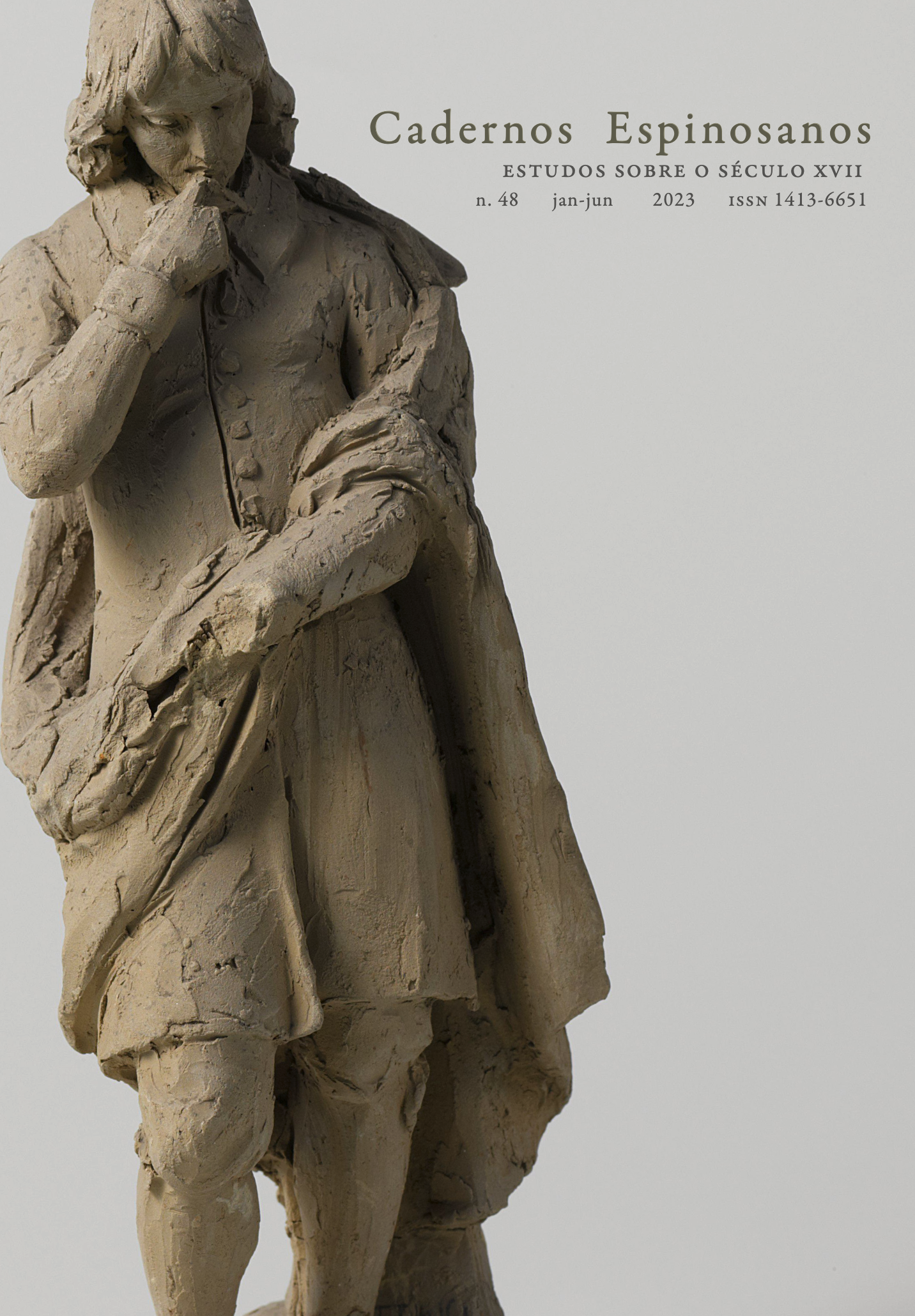The state bewteen history and eternity
DOI:
https://doi.org/10.11606/issn.2447-9012.espinosa.2023.197836Keywords:
Spinoza, Eternity, Death, Individual, Revolution, RenovationAbstract
The dissolution (or death) of the State is a common concern of all contractualist authors. Most of them consider that the State is a mortal body which, whether good or badly constituted, is unavoidably condemned to dissolve itself. And what about Spinoza? Does he think that the political body, like the human body, is bound to certain, unavoidable, death; or does he think, on the contrary, that the State may last forever? This is the question I pose here, and, to answer it, I analyze several dispersed passages from Theological-Political Treatise and Political Treatise where the topic is (directly or indirectly) addressed. It should emerge clearly from the reading I advance that the problem of State’s death has not only a theoretical interest, but is also related to what are, in Spinoza’s understanding, the practical limits of political science.
Downloads
References
DEN UYL, D. (1983). Power, State and Freedom: An Interpretation of Spinoza’s Political Philosophy. Assen: Van Gorcum.
ESPINOSA, B. (1972). Opera. ed. Carl Gebhardt. Heidelberg: Carl Winters Universitätsverlag, F vols.
ESPINOSA, B. (2004). Tratado Teológico-Político. Tradução, introdução e notas de Diogo Pires Aurélio. (3ª ed.). Lisboa: INCM.
ESPINOSA, B. (2012). Tratado Político. Tradução de Diogo Pires Aurélio. Lisboa: Círculo de Leitores e Temas e Debates.
ESPINOSA, B. (2020). Ética. Tradução, introdução e notas de Diogo Pires Aurélio. Lisboa: Relógio D’Água.
GUILLEMEAU, E. (2008). “Des chocs aux fluides, quelques paradigmes mécanicistes dans la théorie politique de Spinoza”. In J. Carvajal e M. Luisa de la Cámara (ed.). Spinoza: de la física a la historia. Cuenca: Ediciones de la Universidad de Castilla-La Mancha.
HOBBES, T. (1839-1841). The English Works of Thomas Hobbes of Malmesbury. Collected by William Molesworth. London: John Bonn, vol. III.
HOBBES, T. (1996). Leviatã. Tradução de João Paulo Monteiro e Maria Beatriz Nizza da Silva. Lisboa: 70.
HOBBES, T. (1998). Do Cidadão. Tradução de Renato Janine Ribeiro. São Paulo: Martins Fontes.
LOCKE, J. (2007). Segundo Tratado do Governo. Tradução de Carlos E. Pacheco Amaral. Lisboa: Fundação Calouste Gulbenkian.
MACPHERSON, C. B. (1962). The Political Theory of Possessive Individualism: From Hobbes to Locke. Oxford: Clarendon Press.
MAQUIAVEL, N. (2015). Discorsi sopra la prima deca di Tito Livio. Milano: BUR.
MATHERON, A. (1988). Individu et communauté chez Spinoza. Paris: Minuit.
MATHERON, A. (2020). “L’état, selon Spinoza, est-il un individu au sens de Spinoza?”. In F. Del Lucchese, D. Maruzzella and G. Morejón (ed.), translated by D. Maruzzella and G. Morejón. Politics, Ontology and Knowledge in Spinoza. Edinburgh: Edinburgh University Press.
MOREAU, P-F. (1994). Spinoza: L’expérience et l’éternité. Paris: PUF.
MORFINO, V. (2008). “Spinoza, interprète de Machiavel dans le Traité Politique”. In C. Jaquet, P. Sévérac et A. Suhamy (ed.). La Multitude libre: Nouvelles Lectures du Traité Politique. Paris: Éditions Amsterdam.
NADLER, S. (2018). Spinoza: A Life. (7º ed.) Cambridge: Cambridge University Press.
NANCY, J-L. (1996). Être singulier pluriel. Paris: Galilée.
RICE, L. (1990). “Individual and Community in Spinoza’s Social Psychology”. In E. Curley and P. -F. Moreau (ed.). Spinoza: Issues and Directions. Leiden/New York/København/Köln: E. J. Brill.
ROUSSEAU, J-J, (2010). O Contrato Social. Lisboa: Editorial Presença.
RUBIO, L. (2014). “La política como física del poder en Spinoza”. Res publica: Revista de Historia de las Ideas Políticas, vol. 17, nº 1, pp. 33-57.
ZOURABICHVILI, F. (2002). Le conservatisme paradoxal de Spinoza: Enfance et royauté. Paris: PUF.
Downloads
Published
Issue
Section
License
Copyright (c) 2023 Albano Pina

This work is licensed under a Creative Commons Attribution-NonCommercial-ShareAlike 4.0 International License.
Autores que publicam nesta revista concordam com os seguintes termos:
- Autores mantém os direitos autorais e concedem à revista o direito de primeira publicação, com o trabalho simultaneamente licenciado sob a Licença Creative Commons Attribution que permite o compartilhamento do trabalho com reconhecimento da autoria e publicação inicial nesta revista.
- Autores têm autorização para assumir contratos adicionais separadamente, para distribuição não-exclusiva da versão do trabalho publicada nesta revista (ex.: publicar em repositório institucional ou como capítulo de livro), com reconhecimento de autoria e publicação inicial nesta revista.
Authors who publish in this journal agree to the following terms:
b. Authors are authorized to take on additional contracts separately, to non-exclusive distribution of the article published in this journal (ex.: to publish in institutional repository or as part of a book), with an acknowledgment of its initial publication in this journal.


